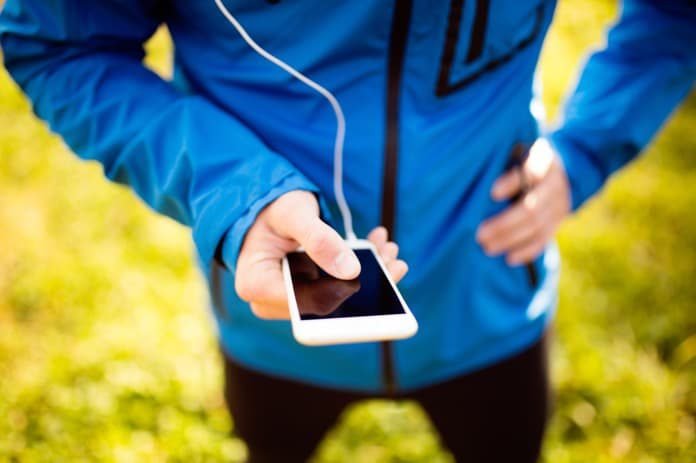Want to check your blood pressure on-the-go? Do you need encouragement to eat more vegetables? Below, we share five of the latest and upcoming smartphone app developments that may help you achieve your health goals.
We have long passed the era of only using our smartphones to send e-mails and schedule appointments. Now, we can use our smartphones to simplify and track almost every aspect of our lives, from paying for coffee at Starbucks to counting our daily steps.
Smartphone advancements have been especially popular when it comes to helping individuals achieve their health goals. But the latest technologies have gone further than just counting our daily steps. Developers are now working on more advanced applications (apps) to monitor our health more closely.
Below, we are sharing five of the latest and upcoming smartphone developments that may help you achieve your health goals.
1. Check your blood pressure
High blood pressure is a major risk factor for heart disease and stroke and it is important to check it regularly. Researchers are currently developing a unique smartphone case that will make checking your blood pressure as easy as holding your phone.
Using 3D-printing technology and circuitry, the smartphone case would detect the pressure of an artery in the finger and measure the applied force and resulting amplitude of blood-volume change. You would be able to read your systolic, diastolic, and mean blood pressure through a mobile app in real time.
 Funded by a grant from the US National Institutes of Health, researchers found that after testing the smartphone case on 30 users, almost 90% of participants had consistent readings after only one or two attempts. This accuracy is comparable to standard cuff-based monitor or finger cuff devise blood pressure detection methods.
Funded by a grant from the US National Institutes of Health, researchers found that after testing the smartphone case on 30 users, almost 90% of participants had consistent readings after only one or two attempts. This accuracy is comparable to standard cuff-based monitor or finger cuff devise blood pressure detection methods.
While more studies need to be done to completely assess its accuracy before launching the case into the market, the positive results mean that soon you could be able to check your blood pressure on the go!
2. Help you eat more vegetables
Having trouble keeping up with your daily servings of vegetables? Only 43.9% of Canadians over 12 years old report having five or more servings of vegetables per day. Most Americans consume only 1.7 servings per day! There are already mobile apps that encourage people to adopt healthier behaviours, but many of these apps have not been tested in clinical trials.
 A group of researchers from Standard University carried out a study to test the mobile app Vegethon. The app monitors vegetable consumption and allows the individual to set goals, receive goals, and enable social comparisons. After carrying out the study on 17 overweight adults, they found that the app was very effective in increasing vegetable intake. The average difference in vegetable consumption between users that used the app and those who did not use the app was 7.4 servings of vegetables!
A group of researchers from Standard University carried out a study to test the mobile app Vegethon. The app monitors vegetable consumption and allows the individual to set goals, receive goals, and enable social comparisons. After carrying out the study on 17 overweight adults, they found that the app was very effective in increasing vegetable intake. The average difference in vegetable consumption between users that used the app and those who did not use the app was 7.4 servings of vegetables!
Since the previous study only included 17 people, they recently studied the use of the app again—this time, they studied 135 adults between the ages of 18 and 50. They found that the Vegethon app helped to significantly increase the daily consumption of vegetables. In as short as five weeks, people using the app ate an average of one more serving of vegetables a day compared to those that did not. The app can be personalized, engages with the user daily, and offers feedback. It is already available for iPhone through theApp Store and for Android through Google Play.
3. Prevent heart disease
There are two ways to prevent heart disease: primary prevention by maintaining health and secondary prevention by taking the steps needed to restore health and prevent future complications. While primary prevention involves day-to-day health decisions, one example of secondary prevention is cardiac rehabilitation. Cardiac rehabilitation aims to help patients return to an active state and prevent cardiovascular events from happening again.
 However, previous studies have found that there is poor attendance at cardiac rehabilitation sessions. Mobile health delivery may be a new way of delivering cardiac rehabilitation using smartphones. It has the potential to help primary and secondary disease prevention, deliver personalized interventions, improve patient communication, access to health care services and treatment, improve patient engagement, and provides real-time medication and adherence support. This would allow consumers and providers to monitor health status through wireless diagnostics and clinical decision support.
However, previous studies have found that there is poor attendance at cardiac rehabilitation sessions. Mobile health delivery may be a new way of delivering cardiac rehabilitation using smartphones. It has the potential to help primary and secondary disease prevention, deliver personalized interventions, improve patient communication, access to health care services and treatment, improve patient engagement, and provides real-time medication and adherence support. This would allow consumers and providers to monitor health status through wireless diagnostics and clinical decision support.
Researchers found that mobile health delivery has the potential to improve access to cardiac rehabilitation and management of heart failure for patients that cannot attend programs for cardiac rehabilitation. More studies are needed to see if mobile health delivery to help prevent heart disease will work in rural settings, but it looks promising!
4. Identify jaundice in newborns
Jaundice (yellowing of the skin) often occurs in newborn children when there are high levels of bilirubin (a by-product of old red blood cells breaking down) in the blood.  Newborns are usually screened to make sure they do not have severe jaundice, but the peak of jaundice usually occurs four days after birth, when newborns have already been discharged. The traditional tests that accurately assess the level of jaundice are limited due to the availability of instruments and whether the infant is still hospitalized. Typically, jaundice in newborns is only assessed visually and there is a need for an accurate, reliable, and inexpensive test method.
Newborns are usually screened to make sure they do not have severe jaundice, but the peak of jaundice usually occurs four days after birth, when newborns have already been discharged. The traditional tests that accurately assess the level of jaundice are limited due to the availability of instruments and whether the infant is still hospitalized. Typically, jaundice in newborns is only assessed visually and there is a need for an accurate, reliable, and inexpensive test method.
Researchers in the United States developed a smartphone app called BiliCam to assess jaundice in newborn children and studied the app in 580 newborns across the United States. The app takes a picture of the newborn’s skin next to a colour calibration card (to account for differences in lighting) and sends the picture to a computer server for analysis. Developers drew blood from newborns to determine bilirubin levels in the blood to create algorithms to analyze the pictures and correlate the pictures with the levels of bilirubin in the blood.
The study found that the BiliCam app estimated levels of bilirubin well but was not accurate enough as a standalone method for assessing jaundice. However, it was reported to be helpful as a screening device to determine if newborns needed to have their blood drawn to check for high levels of bilirubin.
5. Screen for anemia
 An app developed by researchers at the University of Washington turns a smartphone into an anemia-screening device. The app, called the HemaApp, uses the smartphone’s camera flash to illuminate a person’s finger to analyze the colour of the blood and estimate the concentration of hemoglobin in the blood.
An app developed by researchers at the University of Washington turns a smartphone into an anemia-screening device. The app, called the HemaApp, uses the smartphone’s camera flash to illuminate a person’s finger to analyze the colour of the blood and estimate the concentration of hemoglobin in the blood.
All the user needs to do is place their finger over the camera and trigger the flash. The app creates a video from the data acquired and translates it into an estimate of hemoglobin concentration. It also uses the user’s pulse to tell the difference between the physical characteristics of the patient’s finger and blood in order to avoid skewed estimates due to skin tone and body mass. Combining the camera flash with other sources like a light bulb or LED light attachment can help boost the app’s accuracy.
In a trial using the app in 31 patients, researchers found that HemaApp was comparable to the FDA-approved medical device, Masimo Pronto. The HemaApp shows to be a promising, cost-effective, and relatively accurate screening tool!
Which app are you most excited to use? Let us know in the comments below!
Written by Jessica Gelar and Kaylin Livshin
Disclaimer: This is not a sponsored post. The applications, nor anyone affiliated with these applications, are not in any way connected to Medical News Bulletin.



